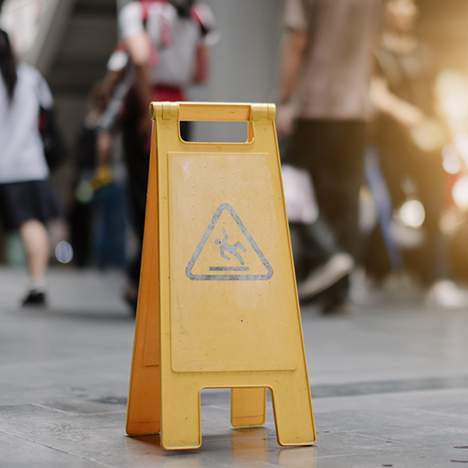In most cases, a laundromat is unlikely to be considered a hazardous setting. As a public space serving a routine purpose, the average laundromat customer is unlikely to consider the potential risks of such an environment – which is also why so few individuals know what to do after a slip and fall accident.
At home, most people have spilled soap or some other viscous substance. The difference in such cases is that the individual is aware of the spill, and is likely to clean the space before it becomes a hazard to others.
In a laundromat, unattended spills are common. Without supervision or regular cleaning, these spills can build up throughout the day, creating an unseen hazard for other customers.
Like any other business, a laundromat has a lawful commitment to maintain an environment that prioritizes the safety of its customers. Despite this, accidents in laundromats are surprisingly common, resulting in substantial slip and fall medical bills for unsuspecting customers.
Potential Slip and Fall Dangers at a Laundromat Include:
- Wet floors caused by overflowing washers.
- Wet floors from leaking sinks or toilets.
- Soap spilled by other customers.
- Unmarked, recently cleaned floors.
- Intrusive weather conditions such as rain or snow.
- Frozen walkways or steps.
- Torn or frayed carpeting.
- Defective or damaged flooring.
- Damaged steps or defective railings.
- Broken washers.
- Defective electric wires or extension ropes.
- Unattended clothing.
- Junk and other items left in public walkways.
In the event that washing machines damage clothing, it is not unusual for customers to discard ruined clothes in walkways or other public spaces, creating potential hazards for passersby. It is the responsibility of laundromat proprietors to keep watch for unsafe conditions such as this, and to post simple, visible notices if a potential risk cannot be promptly repaired.
In the event that spills or other perilous conditions are disregarded, laundromat customers may be vulnerable to injuries including blackouts, traumatic brain damage, broken bones, and back or neck injuries.
Any individual who endures harm caused by a negligent condition at a laundromat has a right to seek payment for medical expenses, pain and suffering, as well as wages lost while unable to work or pursuing a personal injury claim.
 Who Is Liable in a Slip and Fall at a Business?
Who Is Liable in a Slip and Fall at a Business?
The owner or operator of a laundromat is responsible for any wounds to individuals that were caused by the proprietor’s carelessness, including a slip and fall at their place of business. The proprietor must keep the laundromat sensibly free of hazards, and must caution individuals of any known perils.
To be at fault, carelessness or negligence on the part of the proprietor must be proved. For example, if the proprietor neglects to assess and maintain washing machines on the premises, they may be responsible for any wounds incurred as a result of unsafe conditions stemming from the issue.
Slip and Fall Injuries Types Can Include:
- Slip and fall mishaps from wet floors or hazardous conditions on the premises.
- Electrical shock from loose wires.
- Hands or fingers stuck in damaged machines.
By opening a laundromat for business, the proprietor is assuring that their machines are fit for the task, suitable, and ready to wash. If the machines don’t work effectively, or are unable to fulfill their duty, the proprietor must make the issue known, or assess the issue. If this does not occur, the proprietor could be at fault for harming their customers or their customers’ belongings.
Are There Limits on Liability in a Typical Slip and Fall Settlement?
In the event of a slip and fall accident at a laundromat, it is the carelessness or negligence of the proprietor that must be questioned when considering the limits of liability. Outlandish dangers beyond the conceivable control of the proprietor are unlikely to result in a successful settlement on the part of the injured, just as newly discovered hazards that the proprietor has not had adequate opportunity to address may present limits on liability in a slip and fall case at a laundromat.
When to Call a Slip and Fall Injury Attorney After a Laundromat Accident
If you’re not sure what to do after a slip and fall accident in a laundromat, we may be able to help. After an injury, many individuals will simply contact their insurance company to process a claim. Although this is a common avenue of pursuit, it is not one that is recommended. Insurance companies have little incentive to provide their customers with compensation that matches the individual case, as it is in their best interest to pay as little as possible on each claim (if anything is paid at all).
If you’ve been injured in a slip and fall accident at a laundromat, Avrek Law wants to hear more about your case. With more than 50 years of combined experience in helping injured individuals seek justice, Maryam Parman and the attorneys at Avrek Law are here to help. Learn firsthand how we’ve recovered Over $2 Billion in over 45,000 cases – contact us today for a free consultation!
